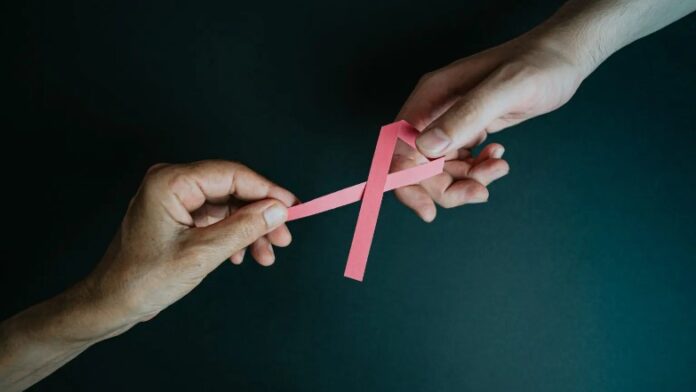The Covid-19 pandemic has turned the care of cancer patients upside down. Screenings, operations and non-essential examinations have been delayed, with serious consequences for many in the years to come, particularly in the early treatment of the disease.
On World Cancer Day this February 4, Dr Hans Kluge, World Health Organization (WHO) Regional Director for Europe underlined the “multiple threats” posed by Covid-19. “We cannot afford to ignore (…) an epidemic of cancer,” he warned. Cancer, one of the leading causes of death in Europe, kills close to 2.2 million people in the region in a normal year.
Screening of patients under jeopardy
One in three countries in the European Region had partially or completely disrupted cancer services at the start of the pandemic, WHO found. The European Society for Therapeutic Radiology and Oncology (ESTRO) indicated that 60% of radiation-oncology departments witnessed a drop in patients during the first lockdown.
In the United Kingdom, the number of people referred to ‘fast-track’ cancer diagnosis investigations fell by more than 350,000, according to NHS Data. This was due to a drop in people seeking advice on primary care between March and September 2020. In France, the League Against Cancer estimated around 30,000 cancers have gone undetected in the country due to disruption linked to the pandemic in 2020.
In Belgium and the Netherlands, a similar picture unfolds, with 44% and 20-25% fewer cancer diagnoses respectively during the first lockdown compared to the same period in 2019. Catch-up efforts in both countries over the summer led to an increase in the number of diagnoses by autumn, with the Netherlands even witnessing a spike in detections. But in Belgium, the country’s Cancer Registry estimated a total of 5,000 people were not diagnosed since the start of March 2020. The impact of the second wave has not yet been taken into account.
Multitude of risks
For Dr Liesbet Van Eycken, Director of the Belgian Cancer Registry, the reasons behind these worrying figures are clear.
“Non-essential consultations, examinations and operations were temporarily suspended or reduced to a minimum,” she explains. “This was also the case with population screening for breast, colorectal and cervical cancer.” By the end of April, 60% fewer people had been diagnosed with cancer compared to 2019. “In other words, several thousands of cancers were not diagnosed,” Dr Van Eycken told UNRIC, adding that people with cancer symptoms were reluctant to go to hospital out of fear of catching Covid-19.
Medical professionals face numerous issues when treating cancer patients during the pandemic, according to ESTRO. Immunosuppressed patients are at a greater risk of catching the virus, and if a patient catches Covid-19, treatment must be paused. Many cancer specialists also had to lend their support to hospital departments overwhelmed by Covid-19 patients, further increasing delays.
Action against cancer
In the fight against cancer, European coordination is key. WHO Europe has launched a pan-European cancer initiative called ‘United Action Against Cancer’, calling for action at many levels – from the grassroots to governments – to contribute actively to eliminating the threat of cancer.
To fight the disease, making conscious decisions is key, says Dr Van Eycken. This includes choosing a healthy lifestyle with a balanced diet, practicing sport, and taking part in screening campaigns. “Access to healthcare, which is fast, safe, people-oriented and qualitative” is also essential, she adds.
As vaccination campaigns roll out across Europe, Dr Van Eycken tries to assuage potential fears. “Cancer patients are not forgotten in the vaccination strategy. On the contrary, they are even pushed forward. Hang in there, it is coming. Make sure you are well informed and choose the vaccine”.
Additional links:

